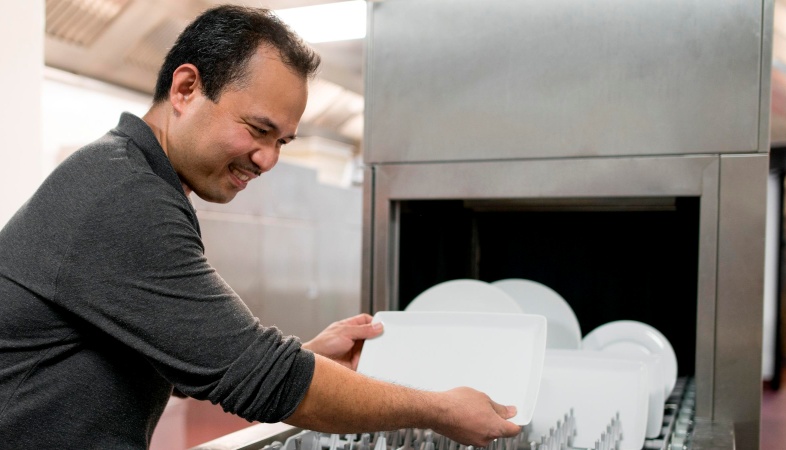Hygienic Kitchen Stewarding: Innovations in Sanitization and Cleaning Protocols to Ensure Food Safety and Compliance
The use of ultraviolet (UV) light technology has gained traction as a non-chemical method for disinfecting surfaces and equipment in commercial kitchens.

In the fast-paced and demanding environment of a commercial
kitchen, maintaining high standards of cleanliness and sanitation is paramount
to ensuring food safety and compliance with health regulations. Kitchen
stewards play a crucial role in upholding these standards, as they are
responsible for cleaning and sanitizing equipment, utensils, and surfaces to
prevent cross-contamination and foodborne illnesses. To meet the evolving
challenges of maintaining hygiene in the kitchen, innovative approaches to sanitization
and cleaning protocols have emerged, incorporating advanced technologies and
best practices to enhance effectiveness and efficiency.
One of the key innovations in hygienic kitchen stewarding is the adoption of automated cleaning systems and equipment. Automated dishwashers and sanitizing machines utilize high-pressure water jets, heat, and sanitizing agents to effectively remove food residue and kill harmful bacteria, ensuring that dishes, utensils, and equipment are thoroughly sanitized and safe for use. These automated systems not only improve cleaning efficiency but also reduce the risk of human error and ensure consistency in cleaning standards.
In addition to automated cleaning systems, the use of antimicrobial coatings and materials has become increasingly prevalent in commercial kitchens. Antimicrobial surfaces, such as stainless steel countertops and cutting boards treated with antimicrobial agents, help inhibit the growth of bacteria and other pathogens, reducing the risk of cross-contamination and foodborne illnesses. Similarly, antimicrobial floor coatings and wall coverings create a hygienic environment that is easy to clean and maintain, minimizing the spread of germs and contaminants.
Furthermore, advancements in cleaning chemistry have led to the development of eco-friendly and biodegradable cleaning solutions that are both effective and environmentally sustainable. Green cleaning products made from natural ingredients such as enzymes, plant-based surfactants, and essential oils offer a safe and non-toxic alternative to traditional cleaning chemicals, reducing the environmental impact of kitchen stewarding operations. These eco-friendly cleaning solutions are gentle on surfaces, yet powerful enough to effectively remove grease, grime, and food residue without leaving behind harmful residues or odors.
Another innovative approach to hygienic kitchen stewarding is the implementation of digital monitoring and tracking systems to ensure compliance with cleaning protocols and hygiene standards. Digital platforms and software applications enable kitchen managers to create customized cleaning schedules, assign tasks to stewarding staff, and track cleaning activities in real-time. By digitizing cleaning protocols and documentation, kitchen managers can streamline communication, improve accountability, and identify areas for improvement in hygiene practices.
Additionally, the use of ultraviolet (UV) light technology has gained traction as a non-chemical method for disinfecting surfaces and equipment in commercial kitchens. UV-C light, which has germicidal properties, can effectively kill bacteria, viruses, and other pathogens on surfaces within minutes of exposure. UV disinfection systems can be installed in dishwashers, ice machines, and other equipment to complement traditional cleaning methods and enhance sanitization protocols, providing an extra layer of protection against foodborne contaminants.
Innovations in sanitization and cleaning protocols have revolutionized hygienic kitchen stewarding, enabling commercial kitchens to maintain high standards of cleanliness, ensure food safety, and comply with health regulations. From automated cleaning systems and antimicrobial surfaces to eco-friendly cleaning products and digital monitoring systems, these innovations leverage technology and best practices to enhance effectiveness, efficiency, and sustainability in kitchen stewarding operations. By embracing these innovative approaches, commercial kitchens can create a safe and hygienic environment that instills confidence in customers and promotes public health.
.png)





























